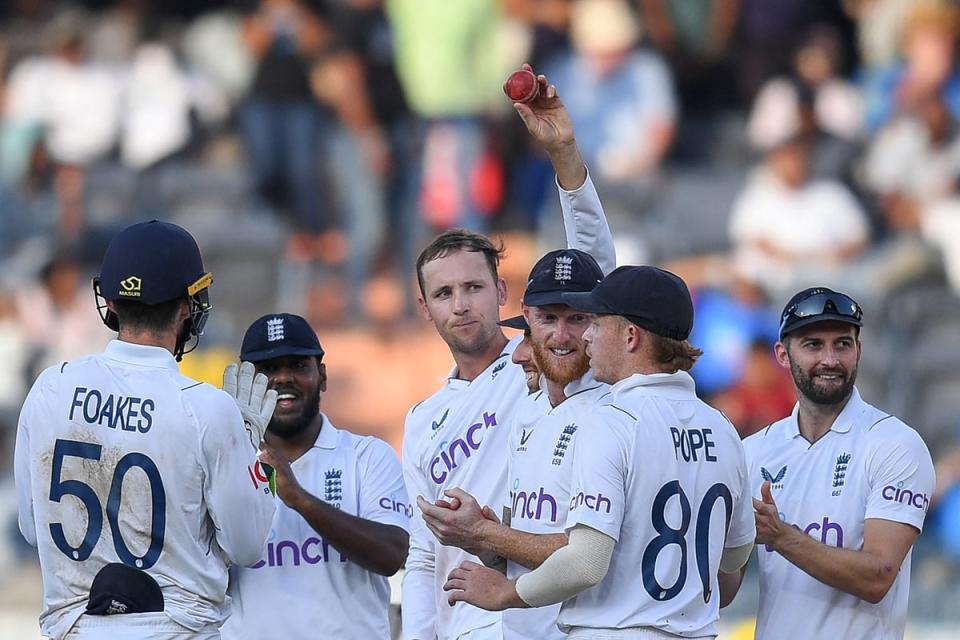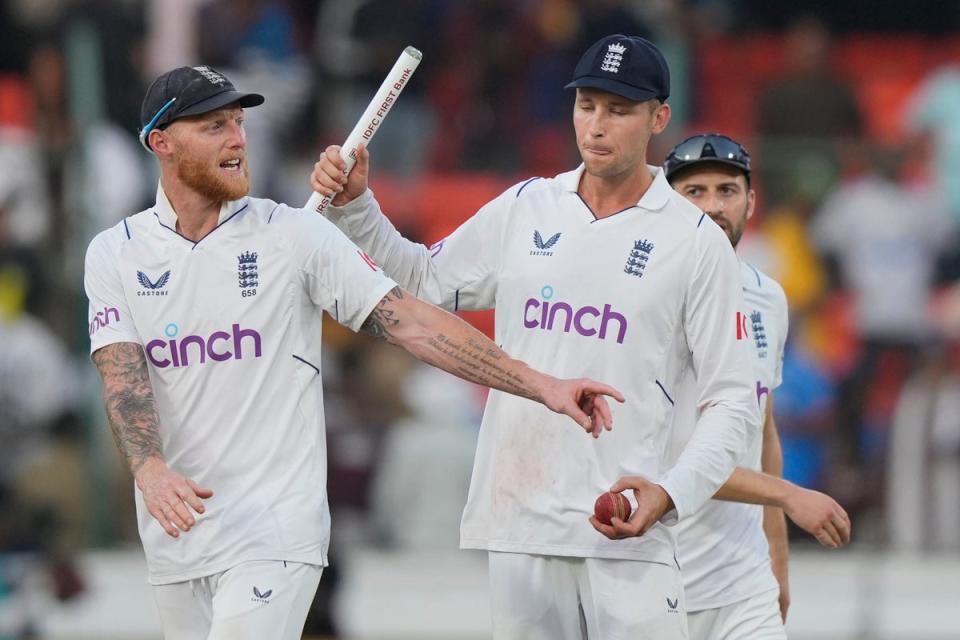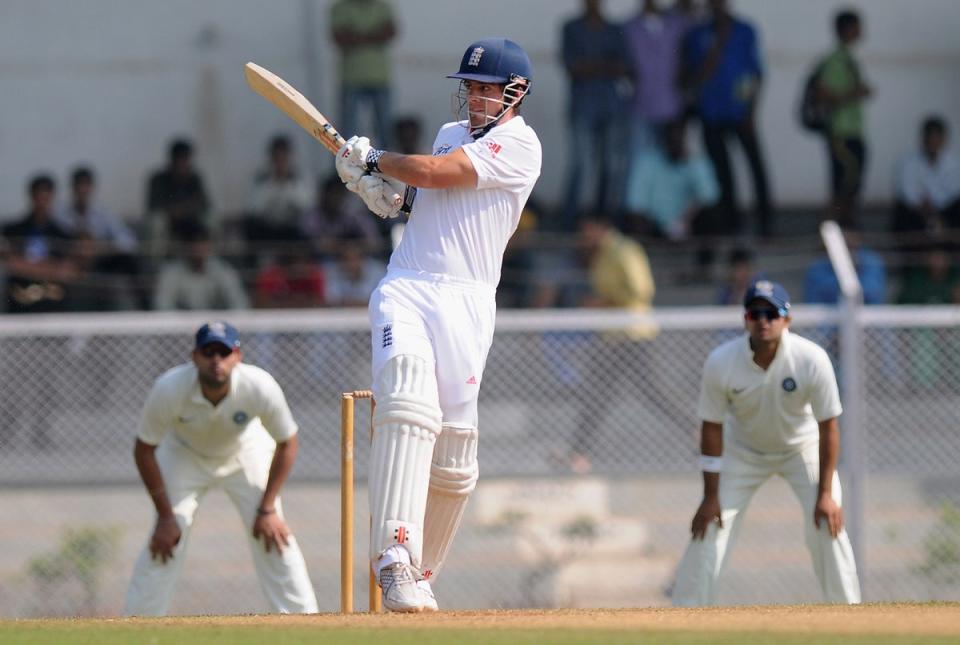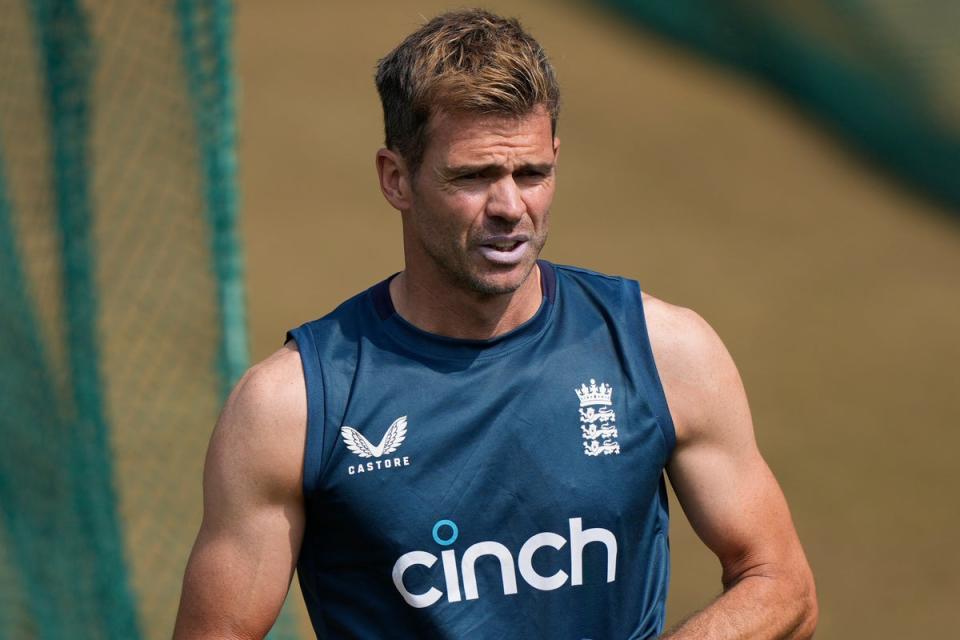Sir Alastair Cook: ‘England have turned the tables with first Test masterclass – how will India react?’

Playing Test cricket on the subcontinent is notoriously hard, one of the most difficult assignments in all of sport. Every element of the game is stacked against you, from the spinning pitches and stifling hot air to the intense, unrelenting atmosphere inside the ground, with fans who like to let you know they want you to fail.
Few know how to overcome it like Sir Alastair Cook. He hit seven Test centuries in Sri Lanka, Bangladesh, Pakistan and India, including a majestic 190 in Kolkata in 2012, an innings at the heart of England’s last Test series win in India, and India’s last Test series defeat on home soil against anyone. So when he describes the first Test victory in Hyderabad as one of the best in history, he means it. “It is one of the greatest away wins, or any Test win,” says Cook, who will be in the studio to analyse the second Test for TNT Sports.
The victory does a couple of things to this series, which was almost written off in some quarters as a case not of if but how badly England would be beaten.
First, it fills the team with confidence in their own skills on Indian wickets, and they will need that faith when the going inevitably gets tough. “When you play in the subcontinent it can be very overpowering,” says Cook. “If you get behind, the momentum is very hard to stop. Whenever we got behind, it was very hard to change it.”
Belief is a sporting cliche but it is an essential ingredient if England are to pull off what hasn’t been done to India for more than a decade and win the series. The inexperience of England’s bowlers might actually help.
“Because of their status in terms of the IPL, you can see [the Indian players] as demi-gods and treat them as demi-gods, and subconsciously that can play with your mind. But the guys who haven’t played much out there just see, ‘Oh, they’re normal cricketers – very good, but normal and can be beaten’.”

The second is the result’s effect on India. The question before the series was whether England’s Bazball approach would work, whether it would need fine-tuning, whether it would even be adopted by the end of the series after a battering. Instead, the ball is now in India’s court.
When England attack, when the sweep becomes as devastatingly effective as it was in the hands of Ollie Pope on day three, how will India react? Do they hold their nerve and wait for the mistake, or do they blink and adapt their gameplan? In the first Test, captain Rohit Sharma often got caught in between and by the time he changed his tactics, the game was already getting away.
“They did look a little bit all at sea,” says Cook. “I think it shook them. When you’re 200 runs ahead and you’re so used to winning, [you think] ‘Oh, this won’t happen much longer’. Rohit didn’t change the field for a while because stats say when you play a high-risk shot against the world-class bowling of Jadeja, Ashwin and Patel, the odds are stacked in your favour.
“So tactically it’s going to be intriguing to see whether England have forced India’s hand and they become more defensive in their field placings, and therefore the traditional way of getting out against spin – caught bat-pad, caught silly point, playing defensively – England might have taken that away because India might have less men around the bat.”
Cook was in charge of a very different team when England visited India in 2012, in what was his first overseas tour as captain. There was no Bazball mentality, but England had Cook’s commanding presence leading from the front, the once-in-a-generation talent of Kevin Pietersen in the middle order, and elite spinners in Graeme Swann and Monty Panesar who outbowled the Indians in their backyard.

England lost the first Test, but Pietersen produced a breathtaking 186 to win the second in Mumbai against the odds, and the momentum swung dramatically. Cook’s 190 followed at Eden Gardens two weeks later and England never looked back, winning 3-1.
“It was quite an easy tour to captain,” Cook says. “Just throw the ball to Monty and Swanny, they’ll do the job. If not, a bit of reverse swing from Jimmy [Anderson] and Finny [Steven Finn]. I was lucky to have experienced spinners.”
By contrast, England have a relatively callow attack, with debutant Tom Hartley – magnificent in Hyderabad – and Shoaib Bashir now making his debut in this second Test, replacing the injured Jack Leach. Cook was stunned by Hartley’s seven-wicket haul in the second innings: “England might have found a cricketer who is good under pressure, and that’s ultimately what Test cricket is about.” James Anderson also comes in for the game in Visakhapatnam, which starts on Friday, replacing Mark Wood.
Cook played in Visakhapatnam in 2016 in a Test match England would rather forget, when Virat Kohli hit 167 en route to an utterly dominant victory. As it turns out, Cook has forgotten. “To be totally honest, I can’t remember it at all,” he laughs. “So I could start waffling on about it, but I couldn’t even tell you what it looks like.”

The question was raised last summer about whether a young Cook would necessarily break into this England team, which brought a bold answer from Stokes. “While I’m captain and Baz is coach, that is not something we’re looking for,” he said, when the hypothetical was put to him. “We want players who will go out there and put pressure on the bowlers straightaway … it’s pretty obvious the sort of players we want.”
That was a strong statement about England’s greatest runscorer, one which Cook doesn’t entirely agree with. “Stokesy can have the other [players], it’s fine, I’ll sit and watch him,” he smiles. “Ultimately, volume of runs makes a big, big impact. If you go back to when I first started as a 21-year-old, I scored quite a lot of runs to force my way in and if a 20, 21-year-old does that, the selectors will definitely look at him.”
That was the case for Zak Crawley, now established as an opening batter who sets the tone. Like Cook, Crawley also admitted he didn’t know anything about the venue to the media this week, but reports from the England camp suggest slightly damper conditions, and there could be some joy for Anderson. “They're absolutely a top side in their own conditions,” Crawley said. “There are four games left, we have got to stick to what we do well and hopefully results come from there.”
Cook is more concerned about momentum, something England stole and never let go of 11 years ago. Stokes’ side already have it here, and a fast start to the second Test is key. “If England start well and score quickly again, it will really be interesting to see how India cope with that. If England can somehow get ahead of the eight-ball in the game, I think India will find it really hard.”
Tune in to the second Test of England’s tour of India, live on TNT Sports 1 from 3.30am on 2 February. Sign up to TNT Sports and Discovery+ here

